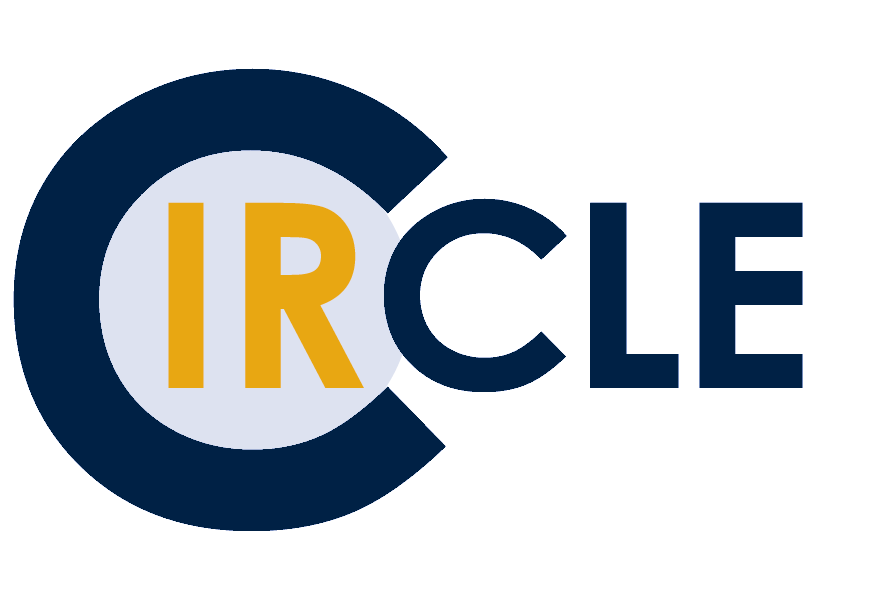
Photo courtesy: Flickr
It’s the final weeks of the term as well as my Work Learn term at cIRcle, UBC’s institutional repository. This blog post is a snapshot of the various projects I have worked on and the diverse set of skills I have developed in the process.
Electronic Theses & Dissertations (ETD) Supervisor Authored Content Recruitment
cIRcle’s mandate is to preserve and promote published and unpublished work by the UBC community and its partners. This project aimed to identify, request, and ultimately deposit scholarly articles authored by UBC faculty members who have supervised UBC graduate theses and dissertations. After developing a foundational knowledge of cIRcle processes, the main stages of the project involved the following:
- Identification of suitable content for inclusion
All authors in this project are UBC faculty members who have acted as a supervisor for an ETD. We chose a small sampling of supervisor names to test out the project workflow and procedures. From this list, I identified different articles published by the authors in the past 5 years that are behind a paywall.
- Investigation of publisher permissions for self-archiving
Each publisher has their own distinct permissions and policies around sharing work and open access. Using SHERPA/ROMEO, a database of publisher open access policies, I gathered information on the identified articles. I was focused on information such as the permitted version, whether an embargo is required and when it lapsed, and journal-specific self-archiving policies. You can read more about self-archiving on cIRcle’s copyright and permissions page.
- Outreach to supervisors
Once the article information was documented, I started creating email templates addressed to authors requesting permission to deposit their material in cIRcle. A unique feature of this project was also the connection to the Tri-Agency Open Access Policy on Publications. As per the policy, articles published as a result of grant-funding by the Canadian Institutes of Health Research (CIHR), the Natural Sciences and Engineering Research Council of Canada (NSERC), and the Social Sciences and Humanities Research Council of Canada (SSHRC) are required to be deposited in an online repository within 12 months of publication. Depositing in cIRcle fulfills this requirement and is a strong motivator for scholars to contribute their work to open repositories.
Over the course of this project, I have developed a knowledge base on open access and institutional repositories. I successfully navigated the steep learning curve associated with grasping publisher terms, policies, and licenses. Future updates to the project will be shared on our cIRcle blog.
Find out more about similar projects such as the COVID-19 Research Recruitment initiative. If you’re interested in depositing your work into cIRcle, visit the cIRcle Submissions page for more information.
Accessibility Best Practices for Email & Digital Outreach
Accessibility at cIRcle is an ongoing initiative aimed at researching and implementing best practices to improve user experience. Previous projects have focused on improving cIRcle’s web presence, including WordPress and Wiki.
Email is a common and vital tool for internal and external communication that was identified as a priority for meeting accessibility practices. Hence, this project was aimed at researching and identifying accessibility best practices for digital outreach, specifically via Outlook email. The main deliverable of this project is an internal guiding document outlining some common design best practices and a checklist to consider in developing an email. As an aspiring UX Designer, familiarity and adaptability with current accessibility practices is very beneficial and will inform my future work.
File Naming Conventions Wiki Review and Update
Items get deposited at cIRcle frequently and a file naming convention ensures easy navigation and retrievability of those items. cIRcle provides a File Naming Conventions guide, hosted on UBC Wiki. This project involved updating the existing Wiki page with updated information provided by the cIRcle Office (the previous version can be accessed by clicking on “View history” near the top-right of the guide).
Having very minimal experience editing on Wiki, this project honed my technical skills. Specifically, I learned how to create tips and an anchored menu. This was followed up by a detailed review and adjustment based on cIRcle Office feedback.
Communications & Metadata
cIRcle regularly shares project updates, spotlights collections or items, and more through blog posts. During my time at cIRcle, I have published 5 posts, this being my 6th and final one. I have published on a variety of topics including: an introductory post, thematic posts on Black History Month, International Women’s Day, and Earth Day, and an instructional post on using Advanced Search in Open Collections. I have honed my writing and research skills by investigating already assigned topics, as well as pitching new ideas.
While researching for a blog post, I identified areas for metadata remediation in the NEXUS Spring Institute collection. The NEXUS Spring Institute (2004-2009) was an annual conference and one of cIRcle’s earliest partners. As the content was deposited to some time ago, there was an opportunity to update the metadata to current cIRcle metadata practices. After bringing them to the attention of the cIRcle Office, I was tasked with updating numerous metadata fields such as Date Issued, Title, Alternate Title, and Contributor to align with current metadata practices.
During my time at cIRcle, I was also tasked with a metadata remediation project for the History of Nursing in Pacific Canada collection which, amongst other items, includes content identified, facilitated, and/or produced by the Consortium of Nursing History Inquiry. Born out of a need to update metadata to more fulsomely and accurately reflect the Consortium and its contributions, the cIRcle Office identified 23 items for remediation. Both metadata remediation projects provided me with an opportunity to edit metadata in DSpace. Not only do they reflect my technical skills but also my attention to detail.
My time at cIRcle has been an enlightening and educational experience. I enjoyed working on the diverse set of projects and learning more about open access initiatives. I look forward to bringing the knowledge and skills gained in this role to future roles.
